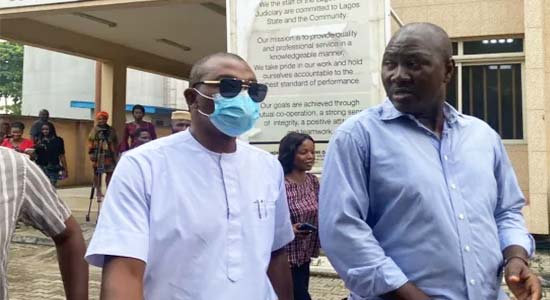The legal battle involving Lagos-based medical practitioner, Dr. Olufemi Olaleye, and the Lagos State government, has taken another decisive turn as his counsel, Chief J.S. Okutepa, SAN, filed an objection before the Supreme Court of Nigeria. The objection, submitted on September 29, 2025, seeks to have the appeal lodged by the Lagos State Government struck out for want of competence.
Chief Okutepa, in his detailed Notice of Preliminary Objection, argued that the appeal filed by the state was not only defective and incompetent but also amounted to an abuse of judicial process. His objection rests on five major pillars, each pointing to why the apex court should not entertain the case.
The first ground raised was the issue of jurisdiction. According to him, the Lagos State government’s appeal was founded entirely on facts and mixed law and fact. By constitutional provision, specifically, Section 233(1) of the 1999 Constitution (as amended), the Supreme Court is barred from hearing such appeals unless leave has first been obtained. In this case, he maintained, no such leave was ever sought.
This flows into the second ground: the failure to obtain leave either from the Court of Appeal or directly from the Supreme Court. Without that permission, he argued, the appeal is fundamentally flawed, leaving the apex court without jurisdiction to even consider it.
Third, Okutepa challenged the record of appeal submitted by the Lagos State government. He said it was compiled unilaterally by the state without recourse to the defence team, a clear violation of both the Supreme Court Rules and the Supreme Court (Criminal Appeals) Practice Directions, 2013. Such disregard, he added, undermines the principles of fair hearing guaranteed by law.
Another major flaw, according to the objection, lies in the late filing of the state’s brief of argument. The Lagos State government had filed its brief on August 13, 2025, long after the time frame permitted under the Supreme Court Rules, 2024. Okutepa described this lapse as incurable, meaning the defect could not be corrected by amendment or extension of time.
The fifth and perhaps most striking argument was that the appeal had become merely academic. The Court of Appeal, in its earlier unanimous judgment, had made crucial findings—that the prosecution’s evidence was contradictory, largely hearsay, and motivated by greed. Since the Lagos State government did not specifically challenge these findings, they remain binding and untouched. That, Okutepa submitted, renders the entire appeal a wasteful exercise with no practical or legal value.
To reinforce his position, Okutepa drew on recent Supreme Court authorities such as Anyanwu vs. Emmanuel (2025) and C & N Investment Ltd vs. Sterling Bank Plc (2024), which underscore the principle that appeals involving facts or mixed questions of law and fact terminate at the Court of Appeal.
He, therefore, urged the Supreme Court to strike out the state government’s appeal in its entirety, describing it as “incurably incompetent and devoid of any utilitarian value.”
This objection, if upheld, will further strengthen the earlier decision of the Court of Appeal, which had discharged and acquitted Dr. Olaleye on all charges. That judgment concluded that the prosecution’s witnesses were unreliable and that the trial was driven by ulterior motives rather than the pursuit of justice.
For now, all eyes are on the Supreme Court as Nigerians await its ruling on whether the appeal by the Lagos State government will survive or collapse under the weight of these legal objections.

